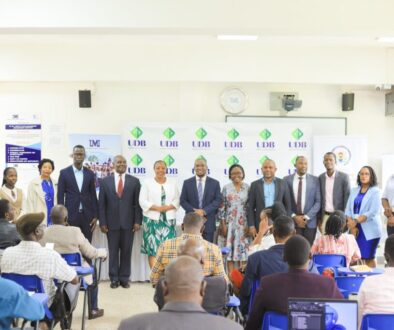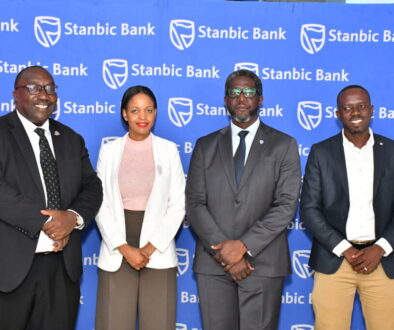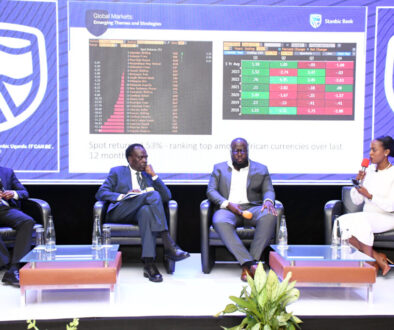Banker Calls For Traders’ Transparency
Traders have been called upon to exhibit transparency when dealing with financial institutions because that will ease their work.
The call was made by Paul Muganwa, the Head Corporate and Investment Banking (CIB) at Stanbic Bank while speaking during a business trade forum at Protea Hotel on Monday.
Organised by Stanbic Bank, the forum was held under the theme, “Coming together to achieve procurement,” as a platform for traders and contractors in the supply chain to discuss avenues through which better working conditions can be achieved.
“We recognise the important role that traders and suppliers play in this country and we pledge to continue supporting them to attain growth. However, whenever you are seeking financial assistance, it is imperative to treat your bank as a very important stakeholder that requires transparency,” Muganwa said.
According to World Bank data, only 14.2% of the private sector in Uganda had access to credit in 2020. This figure is significantly below its Kenyan counterpart whose private sector access to credit stood at 32% in the same period.
Tanzania’s rate stood at 13.2%, South Sudan at 1.9%, while the Democratic Republic of Congo registered 7.5% private sector access to credit.
Small and Medium Enterprises (SMEs) are considered key engines of economic growth in developing countries. In Uganda, SMEs employ about 2.5 million people and make up about 90% of the private sector employment, while contributing to 20% of Gross Domestic Product (GDP).
However, access to finance remains difficult with just less than 40% of SMEs having access to bank loans while about 80% of them are unserved or underserved by financial institutions.
Emma Mugisha, the Executive Director and Head, Business and Commercial Banking (BCB) said, “As a bank, we are usually the ones who are in between different traders; either it’s making a payment, or giving you a letter of credit, or confirming it, or making sure that the parties that have agreed to trade are actually following the different agreements at hand.”
Uganda is scaling up the adoption of electronic government procurement system which is aimed at enhancing efficiency in fighting corruption and reducing delays while holding the concerned accountable.
Mercy Kyoshabire, the Head of Procurement and Capacity Building at the Public Procurement and Disposal of Public Assets Authority (PPDA), said, “Some providers are always complaining because they think people interfere with procurement procedures in one way or the other. Now, with electronic government procurement system, we hope to minimise the human interference.”
“We hope to reduce delays in procurement and disposal, we hope to minimise corruption and fraud specifically, because this system is enforced with tracking mechanisms,” Kyoshabire said.
While representing the Director of Procurement at the Bank of Uganda, Lawrence Male, said, “In contract financing, without cheap capital, the traders cannot do much. At the Central bank, we endeavour to lower the Central Bank Rate, as and when it is necessary. However, interest rates in different financial institutions are usually high. There is a lot that can be done to support traders to get financial access easily.”






